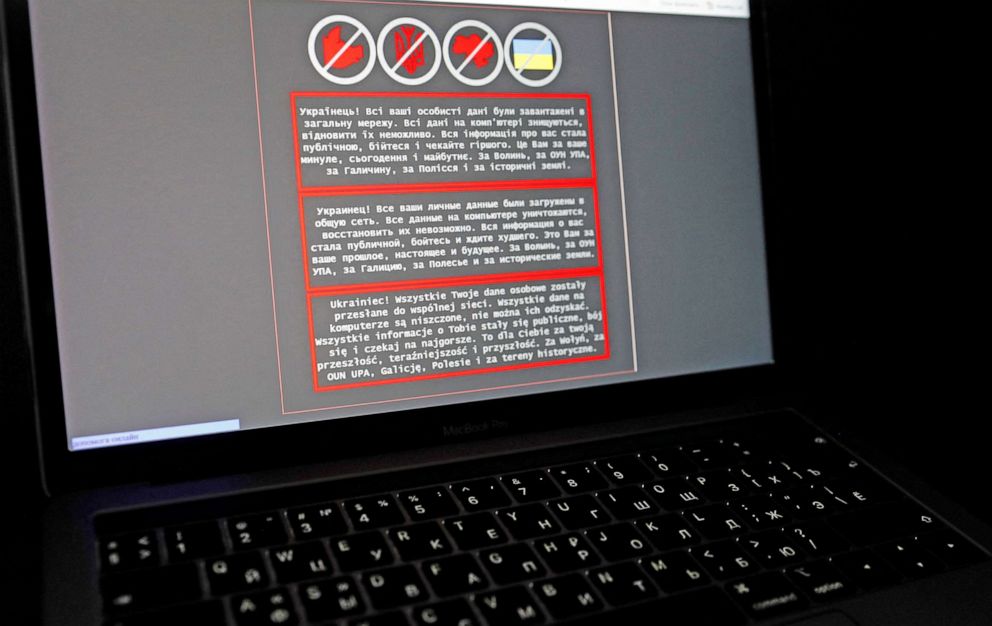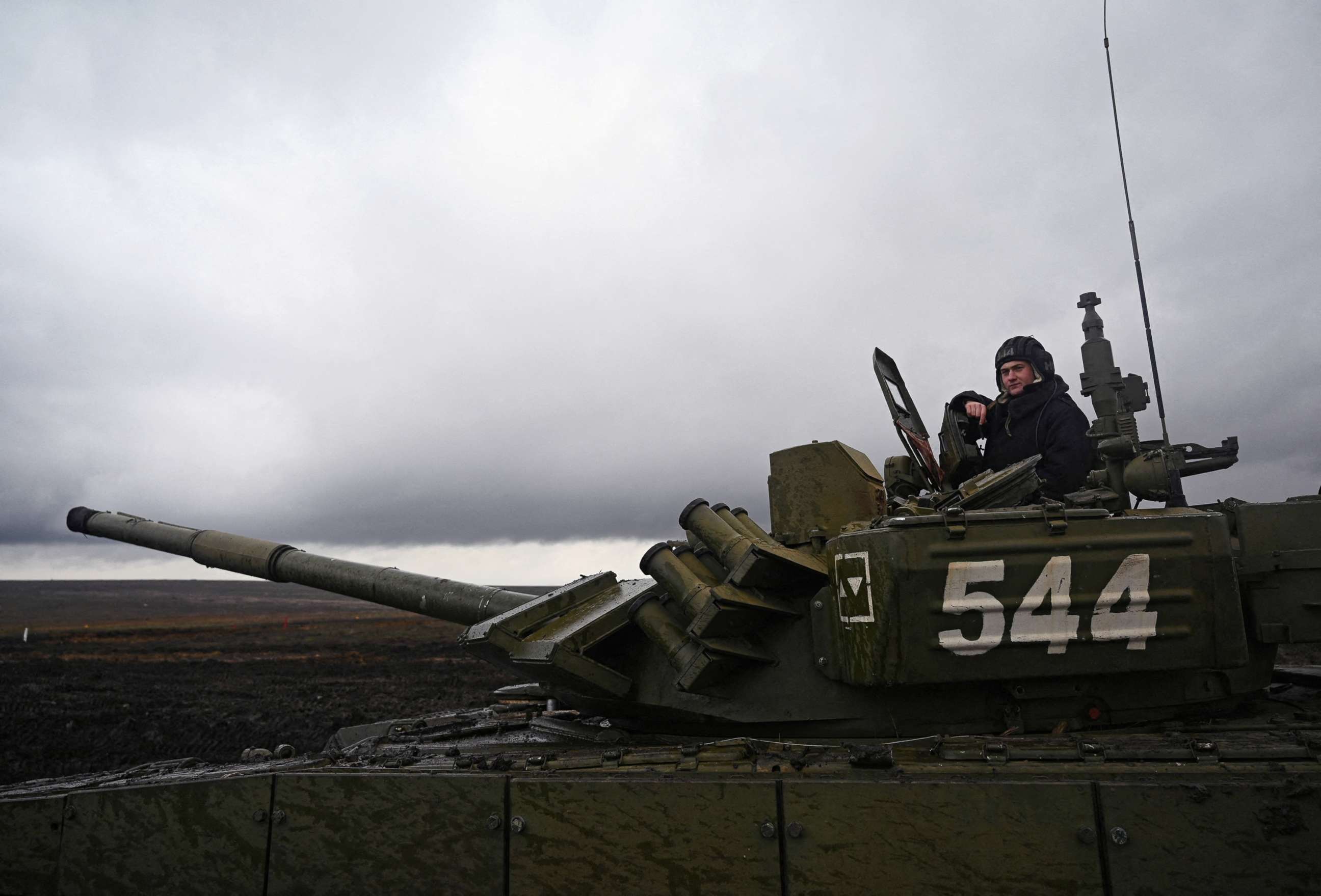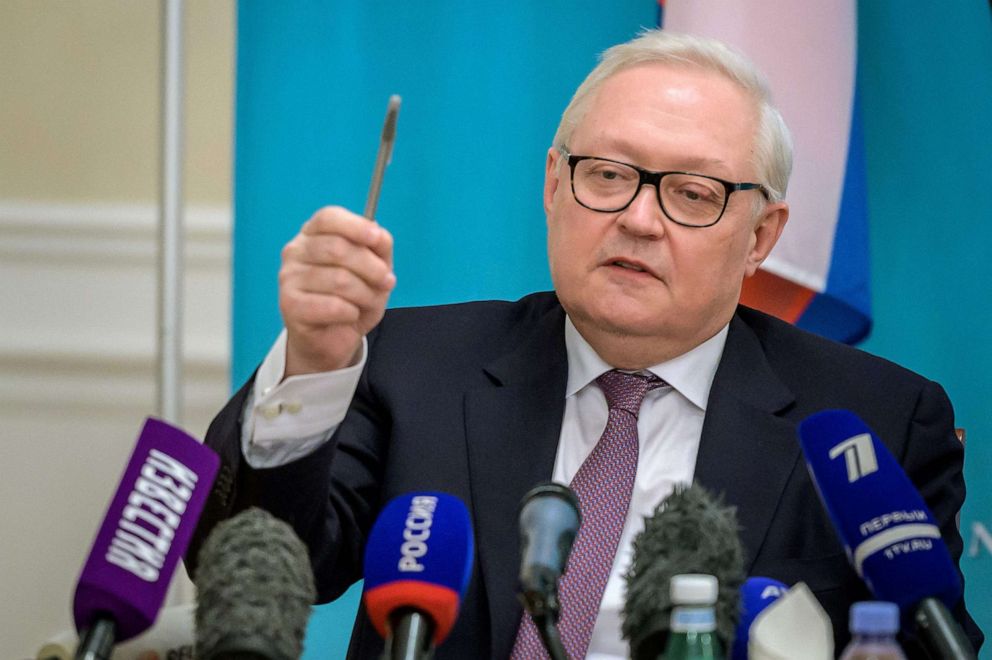Ukraine says 'massive cyberattack' hits government websites
The attack comes amid tensions with Russia that has massed troops near Ukraine.
Ukraine said Friday a “massive cyber attack” has knocked offline the websites of most of its government ministries.
The websites of the government’s cabinet office, the foreign ministry, emergency services minister, as well as the ministries of energy, education, agriculture and several others, were down on Friday, according to Ukrainian media. The country’s public services platform Diia, which holds Ukrainians’ tax numbers and COVID-19 vaccination certificates, was also hit.
A message was posted on the targeted websites reading, “Ukrainians! All your personal data will be uploaded onto the general web. All data on your computer will be destroyed, it will be impossible to restore them. All your information will become public, be afraid and expect the worse. This is for your past, present and future.”
Ukraine’s government has not said who is behind the attack. It comes amid fears of a Russian invasion of the country, as Moscow has massed around 100,000 soldiers at the border, and follows warnings from Ukraine and the United States that Russia might launch cyberattacks amid the tensions.
A day earlier, talks between Moscow and NATO countries aimed at averting a possible Russian military attack concluded with no progress, with Russia saying they were reaching a “dead-end.”

Ukraine’s government did not say whether the attack had caused damage beyond taking down the websites.
“As a result of a massive cyber attack, the websites of the Ministry of Foreign Affairs and a number of other government agencies are temporarily down,” Ukraine’s foreign ministry said. “Our specialists are already working on restoring the work of IT systems, and the cyber police opened an investigation.”
The message posted on the affected websites included a list of historical grievances.
“This is for your past, present and future. For Volyn, for the OUN UPA [Organization of Ukrainian Nationalists/Ukrainian Insurgent Army], for Halychyna, for Polissya and for historical lands,” it read.
The two groups named in the post refer to Ukrainian nationalist partisan fighters that collaborated with the Nazis during the Second World War. Russia frequently accuses Kyiv’s government of embracing fascist groups.

On Friday, the European Union’s top foreign policy official, Josep Borrell, said the bloc’s political and social committees as well as its cyber units would meet to try to assist Ukraine.
“We are going to mobilize all our resources to help Ukraine to tackle this cyberattack. Sadly, we knew it could happen,” Borrell was quoted as saying by Reuters at an E.U. foreign ministers meeting in Brest, France. “It’s difficult to say [who is behind it]. I can’t blame anybody as I have no proof, but we can imagine.”
Russian officials on Thursday suggested the talks with the U.S. and NATO countries this week were at an impasse, since Western countries are refusing to accept Moscow’s key demands for binding guarantees that Ukraine will never join NATO and that the alliance pull back troops from eastern European countries that joined after the Cold War. The U.S. and NATO have rejected those demands as “non-starters.”

Russia’s lead negotiator, deputy foreign minister Sergey Ryabkov, on Thursday said he saw no grounds for more talks in the near future as long as the U.S. and NATO were refusing Moscow’s key demands.
But Russia’s foreign minister Sergey Lavrov has said the country will now wait for written responses from the U.S. and NATO, which it expects next week, before deciding next steps.
Russia has denied it has any plans to attack Ukraine. It warned that if the U.S. and NATO fail to give security guarantees, it will take alternative measures that will have unspecified consequences for European security.
Lavrov on Friday told reporters that Russia would not wait endlessly for the U.S. to accept Russia’s security demands on NATO.
“Our patience is at an end,” he said at a pre-scheduled press conference in Moscow



